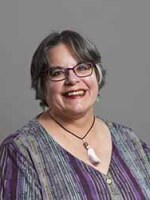The joyous sound of clapping from Chick Corea’s most well-known song, "Spain," puts you right into fiesta mode, with two Brazilian artists on board: Flora Purim’s ethereal voice, plus percussionist, and Flora’s husband, Airto Morea. In 1971, Corea brought Airto and Flora into his band, Return To Forever. That same lineup that recorded the album Light As a Feather.
In his early 20’s, Chick Corea started his pro career. It was the early 1960s, and he worked with Cab Calloway. The Latin jazz side of Corea was nurtured with his next stints in Mongo Santamaria’s Latin band, and then with Willie Bobo. These Latin jazz bands were an integral part of his development, and his four Latin Grammys attest to his skills. He was already making some steam in the belly of jazz, and he hadn’t yet recorded one album as a leader.
Corea’s first LP as a leader came in 1966 with Tones For Joan’s Bones.
In late 1966, Corea was a hurricane of harmonics and endless imagination, hand in hand with unerring rhythm. He rose right into Miles Davis’ band in 1968, replacing Herbie Hancock. The world of jazz felt that mighty new seismic sound. In Davis’ band, Corea participated in the birth of jazz fusion.
It may be said that Chick was the spark to Miles’ ideas, and Chick the perfect foil in return. He performed on the landmark Miles Davis albums In a Silent Way and Bitches Brew, among many more.
Miles sparked Chick, too. Davis convinced Corea that the electronic keyboard was the path for this work. Corea began using that keyboard sound, especially in performance and for live recordings. He kept the electric piano in his toolkit as he continued exploring adventurous post-bop, electric fusion, Latin traditions and even classical music.
The superstar saxophonist with an ear for Brazilian music, Stan Getz, heard Return to Forever’s Light as a Feather album. It's where Getz first heard the tune “Captain Marvel.” It became the title cut on Getz’s 1972 masterpiece. Composed by Chick Corea, the song was taken to new heights by the Getz saxophone sound.
Corea was born in 1941 in Massachusetts. He had a Spanish heart, but his blood came from two kids from southern Italy, his parents. So his compositions “Spain,” “My Spanish Heart,” “La Fiesta” and “Armandos Rumba” reflect his true heart, his Spanish heart.
Corea brought a vitality and excitement to jazz, and you can hear that energy for his entire career, whether he was composing and performing classical music or acoustic jazz or in solo, trio and duet formats, or in the jazz-rock hybrid honed in his time with Miles Davis.
Corea kept his skills sharp during the pandemic with nonstop co-composing challenges within his musical cornucopia of peers.
He was in one of those musical parlays at the end of his life with banjo genius Bela Fleck. In their texting conversations, Fleck discovered a fun fact: Chick Corea was an emoji guy.
Corea died from cancer. His disease went undetected and was only discovered shortly before his death on Feb. 9, 2021.
Then Chick Corea returned to forever.
God speed to our genius, Chick Corea. R.I.P. Armando.








